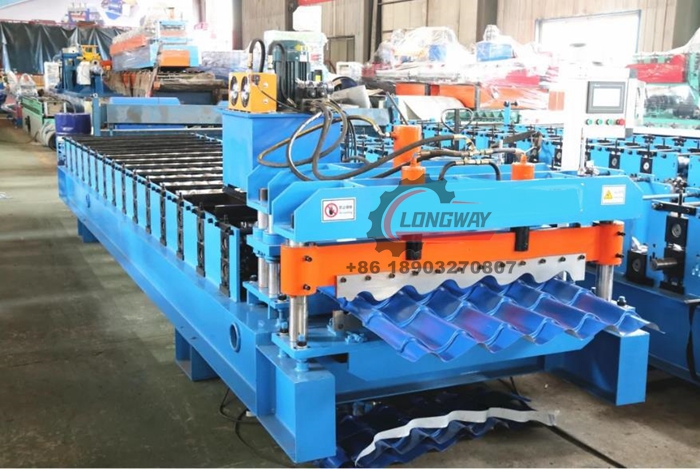Custom Door Roll Forming Machine | High-Quality Manufacturing Solutions
Custom Door Roll Forming Machine Revolutionizing Manufacturing
In the realm of modern manufacturing, efficiency and precision are paramount, especially in the production of doors. A custom door roll forming machine has emerged as a game-changer, offering tailored solutions to meet the diverse needs of the industry. This advanced piece of equipment is designed to transform raw materials into high-quality, finished door components with remarkable accuracy.
Roll forming is a highly efficient manufacturing process that involves feeding a continuous strip of metal through a series of rollers. Each roller is uniquely shaped to gradually form the metal into the desired profile. The custom door roll forming machine takes this process a step further, allowing manufacturers to create bespoke designs that cater to specific requirements, whether for residential, commercial, or industrial applications.
One of the primary advantages of using a custom door roll forming machine is its ability to produce lightweight yet robust door frames. By utilizing materials such as steel, aluminum, or other composites, manufacturers can achieve a balance between strength and weight. This not only enhances the durability of the doors but also makes installation easier and more efficient. Additionally, the versatility of the machine accommodates various styles, including traditional, modern, and even avant-garde designs, ensuring that producers can meet client demands in a competitive market.
custom door roll forming machine

Another significant benefit lies in the cost-effectiveness and reduced labor intensity offered by roll forming technology. Automated systems minimize human intervention, significantly decreasing the likelihood of errors and inefficiencies in production. Moreover, the continuous nature of roll forming enables high-volume production runs, which is crucial for businesses looking to scale up and reduce per-unit costs. When combined with custom design capabilities, the machine can quickly pivot to produce different door styles without extensive downtime.
Furthermore, advancements in technology have enhanced the functionality of custom door roll forming machines. Incorporating features such as programmable logic controllers (PLCs) allows for greater control over the production process, facilitating adjustments for various materials and thicknesses. Smart technology integration paves the way for real-time monitoring and optimization of the production line, ensuring consistent quality and reducing waste.
In conclusion, the custom door roll forming machine stands at the forefront of manufacturing innovation. By offering tailored solutions, improving efficiency, and minimizing costs, these machines empower manufacturers to deliver high-quality, custom-made door products that meet the evolving demands of the market. As industries continue to seek ways to improve production processes and outputs, the roll forming technology will undoubtedly play a pivotal role in shaping the future of door manufacturing.
-
Top Drywall Profile Machine Models for SaleNewsJun.05, 2025
-
The Role of Purlin Machine in Modern Structural BuildingNewsJun.05, 2025
-
The Advantages of Investing in a Metal Roof Sheet Making MachineNewsJun.05, 2025
-
Key Features of Hydraulic Bending MachineNewsJun.05, 2025
-
Innovations in Standing Seam Metal Roof Machine TechnologyNewsJun.05, 2025
-
High - Performance Roof Panel Machine for SaleNewsJun.05, 2025
-
Key Features to Look for in a Roof and Wall Panel MachineNewsMay.23, 2025








